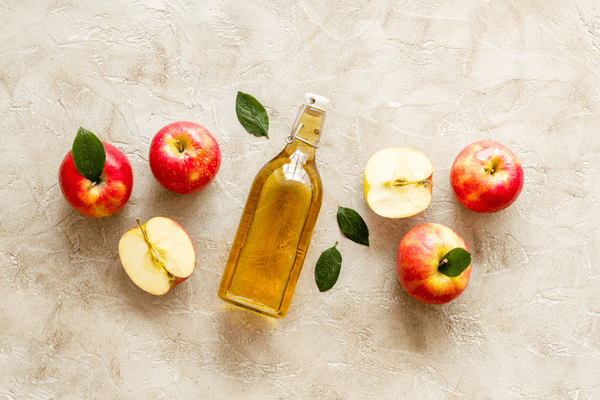My first pet Bubble was an angel in disguise. She lived a happy life of 14 and a half years. However, her loss has created a hollow space in my life which cannot be fulfilled by any other. She enjoyed having human food like chicken and rice, tomatoes, bananas and loaves of bread. We did feed her the occasional dog food in irony but she enjoyed eating food we humans ate. Sometimes, I do feel it is her good nutrition status influenced by her diet which has helped her live a long life.
In the recent past, Bobi – a purebred dog belonging to the breed Rafeiro do Alentejo, has created a Guiness world record exactly a fortnight after a Chichuahua of 23 years old was deemed to be the world’s oldest dog. Bobi belonged to Portugal. He lived predominantly on human food without any seasoning. He was never tied up and loved to run around and have fun leash less. The family does feel that food is the major contributor for Bobi’s longevity. This has become an example which brings about the possibility that dogs can live longer on human food.
However, in the past few years, we may have observed that dogs living to their expected life expectancy is quite rare. Though there are several factors contributing to this such as genetics, breeding issues, medical conditions etc. diet is an essential and plays a major chunk in contributing to lifespan. We would do anything to spend a few more years with our furry baby.
But first, we need to understand the difference between surviving and thriving. Synonymously, life expectancy and wellbeing are inextricable. According to a study, conducted by Drs. Lippert and Sapy, suggest that the pet owner and the veterinarian are equally responsible for the health of the pet. They also describe the individual principles influencing life expectancy and well being of a pet to be due to specific determinants each.
Factors influencing wellbeing (thriving)
- Optimal nutrition
- Satisfaction of physical requirements.
- Safe environment
- Stress free life
- Giving your dog the independence to be themselves.
Factors influencing life expectancy (surviving)
Inherent factors
- Pedigree of the dog (A purebred dog with ancestors and parents registered to the same breed).
- Size of the dog
- Gender
External factors
- Socio-economic status of pet owner.
- Household dynamic
- Quality of diet
The study was conducted on 537 pet dogs who were fed home cooked food of high quality (except table scraps) versus commercial dog food. Surprisingly, pets on home cooked meals thrived for longer duration than pets on commercial dog food. Though the result is startling, it could be because of numerous hidden reasons and facts revealed about commercial dog food.
All about commercial pet food
The process of making or manufacturing dog food is different from home cooked meals. First and foremost, we can identify the difference in terms of –
- Location – There is a difference between cooking in the kitchen and at a factory.
- Method of preparation – When we cook at home we tend to ensure the food is not losing any nutrients. However, manufacturing dog food requires high temperatures, extrusion and flaking which can kill nutrients.
- Ingredients – Home cooked food is fresh and prepared with care and affection. However, dog food needs to be stored for a long time hence, one can be wary of the ingredients used in terms of its source while it also needs chemical agents like preservatives, artificial flavourings or colours etc. Low quality ingredients which act as fillers commonly in pet food are – corn, wheat, soy etc.
- Government regulations – Though there are strict regulations such as the FDA (Food and Drug Administration), FSSAI (Food Safety and Standards Authority of India) etc. it is unfortunate to learn that the booming domestic pet food industry has no strict regulations with exceptions to harmful ingredients used and Bureau of Indian Standards (BIS) pet meals being up voluntary checks. There have been a few instances where certain big brands of commercial dog food have been under the law due to misleading consumers and veterinary professionals.
- Prescription dog food is available at all major pet stores however, it does not require a veterinarian’s prescription or suggestion be a canine nutritionist which makes the chance of feeding your pet the wrong diet quite high.
You may consider feeding your beloved furry friend human food with a twist that it is made specially for them. There are several benefits of feeding your pet human food but it is necessary to remember not to go overboard and avoid feeding them toxic food. Click here, to read more about toxic food for your dogs
The benefits of feeding your dog human food are manifold, but here are some reasons why we think your dog will enjoy human grade food –
Benefits of human grade food
1. Happy ingredients – You can feed your furry friend real ingredients from authentic sources. So, you need not worry about the hidden ingredients like additives and preservatives in dog food and you both can sleep with satisfied tummies.
2. Boosts health – Just like how bugs bunny loves carrots or Popeye and spinach. Your pet can be in the pink of his/her health through a fresh human grade diet. Human grade diet promotes optimal nutrition through food by including vegetables, meat and healthy carbohydrates too.
3. Nutrition – Human grade food provides macronutrients (carbohydrates, proteins, fats) as well as micronutrients (vitamins, minerals, phytonutrients, antioxidants etc.) which are essential for your furry friend’s growth and development.
4. Smooth, soft and shiny coats – The trio of omega-3, 6 and 9 can help your little pooch have an attractive coat which makes many other pet owners go in awe. They may also stink less which is a plus to being a beautiful fluffy dog.
5. Better dental health – Fresh food can help keep bad breath, tartar and plaque at bay as it helps improve salivary gland activity. Saliva is a natural antimicrobial agent.
6. Weight management – You can customise your pet’s diet according to the nutrition they need in terms of balancing macronutrients through different food groups. A healthier weight ensures a better life span.
7. Improved gut health – human grade food is comparatively more efficient for the digestive tract. A study conducted on 12 beagle dogs who were given 4 different diets revealed better excretion in pets who were on human grade food. The 4 diets were – extruded diet, fresh refrigerated diet, fresh diet, fresh diet 2.0.
Dog nutrient requirements are different from human needs. They need several different kinds of nutrients to flourish. To understand how to customise your pet’s food bowl is is essential to understand their nutrition requirements –
- Amino acids – They are crucial for your dog’s survival. There are 10 essential amino acids which your little furry friend’s body cannot make on its own. They help in building muscle, contributing a small part to yield energy. Studies also show that a dog has the capacity to avoid a particular meal if they feel there is deficiency of a particular amino acid. They can hence be selectively choosy in terms of their preference of protein source. Though animal products and byproducts are complete proteins, they can still survive on a vegetarian diet with good amounts of vitamin D supplement.
- Fatty acids – Dietary fats can be sourced from nuts, seeds, oils etc. They are important sources of essential fatty acids (EFA) and help in the absorption of fat soluble vitamins. EFA’s help boost coat health. Poor intake of omega 3 in the diet can lead to coarse, dry hair, visual inability and learning difficulty.
- Energy – The 3 macronutrients provide energy but carbohydrates are the major source of the same. Fermentable carbohydrates such as dietary fibre and absorbable carbohydrates rich in glucose and fructose are energy sources. However, your dog need not necessarily survive purely on carbohydrates for energy.
Here is how you can give your pooch a human grade diet
It is very simple to help transition your pet to a human grade diet. You can just be creative of the recipes you prepare for them.
The standard followed for a transition diet is –
Day 1-2 ( 3/4th of old food + 1/4th of new food)
Day 2-3 ( 1/2 of old food + 1/2 of new food)
Day 4-5 ( 1/4th of old food + 3/4th of new food)
Day 6-7 (100% of new food)
Being conscious and careful of the human food you choose can help promote your pet’s health. Be wary of giving food termed toxic for dogs.
Some healthy human foods are – Fish, yoghurt, chicken, peanut butter, poultry, turkey, beans, broccoli peas, oats, carrots, beetroot, bananas, cheese, apple, blueberries, strawberries, yellow pumpkin etc.
From a broad perspective you could choose a variety of ingredients from the table below –
| Proteins | Beef, chicken, turkey, prawns, pork, tuna, eggs, organ meat, mutton, bison, paneer, soya chunks, tofu, lentils etc. |
| Carbohydrates | Potatoes, sweet potatoes, rice, brown rice, quinoa, oats |
| Fats (as a topper or cooking agent) | Coconut oil, olive oil, sunflower oil, fish oil, sunflower oil etc. |
| Fibre | Most fruits and vegetables |
| Supplements | Honey, cinnamon powder, flax seeds, sunflower or pumpkin seeds, spirulina powder, peanut butter, curd etc. |
Some interesting human grade food ideas for your furry friend are mutton rice cooked in little coconut oil and turmeric, lentil-vegetable soup with chicken, mashed pumpkin with chicken, fish cutlets etc.
If time is a constraint to preparing human grade food to your pet, you can always choose food sold by home cooks especially for pets and treats too or packaged food labelled human grade from authentic brands.
Easy principles to follow when giving your pooch human-friendly food
- Make changes to your pet’s diet gradually.
- The diet must consist of 40% proteins, 50% vegetables and 10% carbohydrates.
- Be careful of their fat intake – fat trimmings, butter, ghee, cheese, fatty cuts of meat are allowed in moderation yet can cause tummy upsets when overloaded.
- Do not give your pet anything you will not eat.
Just like how mothers understand the babbling of their baby, you are the only one who can understand your pet’s body language, barks, whimpers and actions. You can choose what will help them flourish by giving human grade food a chance if you may like under medical supervision. However, it is crucial to remember that your veterinarian may be the best for your pet’s medical conditions but for all things nutrition you can opt for an opinion from a certified canine nutritionist.
Mayuri,
Clinical Dietitian, Simplyweight













